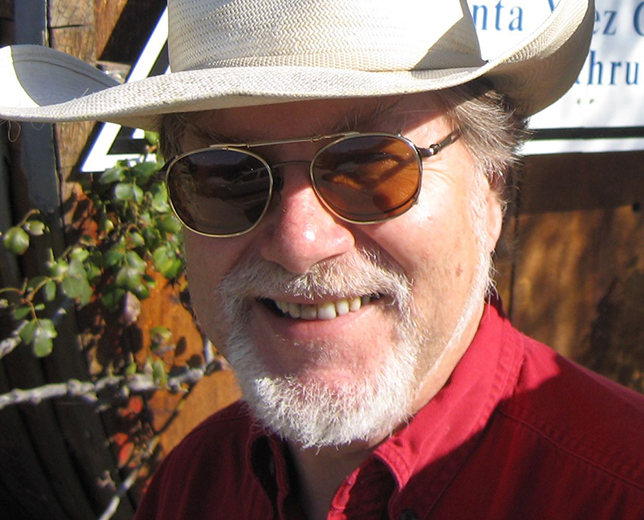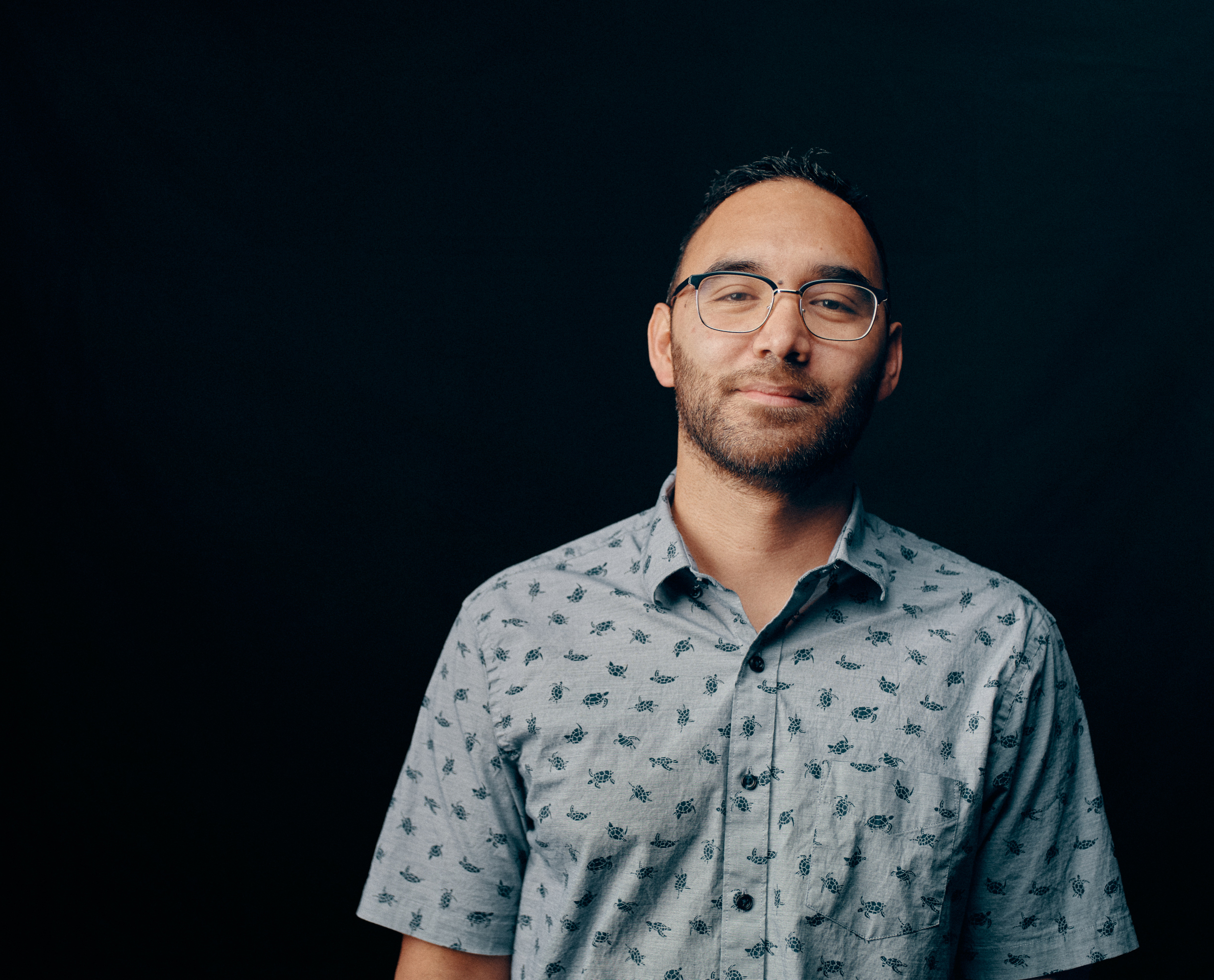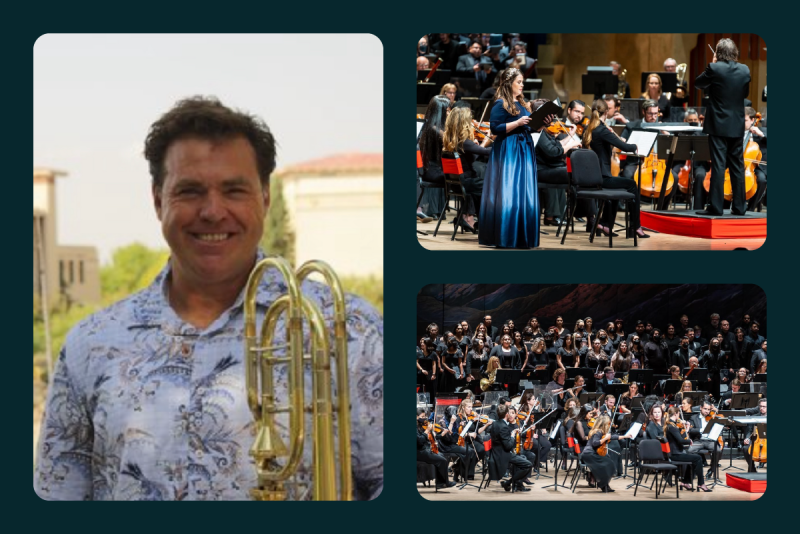Harper Lecture Speaker on the Power of Music and Collaboration to Heal
Harper Lecture Trombone Professor and Chair of the University of Texas at El Paso (UTEP) Department of Music Steve Wilson will speak as part of the College of Arts, Humanities & Social Sciences (CAHSS) Harper Lecture Distinguished Speaker series on May 7, 7-8 p.m., in the Williams Recital Salon of the Newman Center for the Performing Arts. A reception from 6-7 p.m. in the Spencer Reception Room will precede the lecture.
Wilson will address his work with the El Paso music community in response to the 2019 mass shooting at an El Paso Walmart store that killed 23 people and was later identified as an act of domestic terrorism and hate crime against Latinos. Wilson and colleagues in El Paso’s music community collaborated to commission and produce the El Paso Requiem, performed in October 2021, to honor the victims and their families and help heal a grieving community.
“Steve has led a varied and fascinating career as a performer, administrator and arts advocate,” said fellow performer Richard Harris, assistant professor of trombone at the Lamont School of Music. “His leadership role in galvanizing an artistic response to the devastating mass shooting in El Paso is a testament to his unique perspective and commitment to making the arts central to the life of all communities.”
A Place Like No Other
When Harper Lecture Speaker Steve Wilson learned his high school jazz band needed a bass trombonist, he discovered his true calling. Wilson had played euphonium (a small tuba) since joining the beginning band and finding “his tribe” in sixth grade but fell hard for the giant brass instrument.
“The bass trombone has an independent voice where you get to stand up from time to time and be the loud person,” Wilson said, laughing. “I went to contests that year and all the judges said, ‘what do you feed that bass trombone player, raw meat’?”
The UTEP trombone professor and music department chair grew up in El Paso and earned a bachelor’s degree in music education at UTEP followed by a master’s degree and Doctor of Music Arts in trombone performance from the University of Illinois Urbana-Champaign.
He returned to UTEP a few years later when a position opened for trombone professor and has been happily chairing the music department for the past decade. “I would choose this job in this place over being in any major orchestra because I get to decide what I play and perform, whether it be in orchestras, jazz bands, quartets or duos,” he said.
Wilson relates deeply to his students. “The average income in El Paso is quite low and I also came from a fairly poor background, had a single mom who struggled to pay for lessons and benefited from some great trombonists who worked out deals for us that I’m so grateful for.”
Many of his UTEP students have had limited opportunities and consequently “come in at a medium level but are so eager,” he added. “It’s great to watch them blossom and grow once they get the instruction needed. El Paso is such a friendly, welcoming community and I love giving back by teaching lots of young people at no charge.”
Music is everywhere, in every part of the world, every culture,” he said. “It varies greatly from place to place but is part of the human experience. When you work together on a piece like this, when kids or adults perform in a band or ensemble or sing in a choir, whatever political views they hold, the color of their skin, suddenly doesn’t matter.
Steve Wilson
Coming Together to Respond to Tragedy
The nonstop texts and social media messages Wilson started receiving while vacationing with his wife in Colorado in August 2019 resulted in confusion that quickly segued to shock.
“I saw there had been a horrific mass shooting that was racially based at a Walmart in El Paso,” he said. “El Paso is such a special place and it made me really angry that this guy came from a different city to inflict violence on us because we are a largely Hispanic community.”
Distraught, he went to the hospital where most of the victims had been taken and played trombone with friend, fellow performer and now Lamont Assistant Professor Richard Harris, who had visited the UTEP campus previously and flew in to offer support.
In the days that followed, Wilson struggled to figure out a “more significant” way to provide solace. As music department chair, he reached out to contacts with whom he had worked closely in the local chamber society El Paso Pro Musica, the El Paso Opera Company and El Paso Symphony. “I thought, what if we can all come together and do something to honor the victims?”
Wilson invited leaders of the three organizations along with the El Paso Community Foundation (that had been working to raise money for victims’ families) to meet and “threw out the idea of working together on a large-scale chorale masterwork to honor victims and families.” Everyone involved agreed without hesitation.
“Performing music that has never been performed before is an honor and a project that does not come along too often,” El Paso Symphony Conductor Bohuslav Rattay said.
After six months of planning, group members decided to hire Jorge Martin to compose a chorale masterwork requiem that was ultimately 23 minutes long to honor each of the deceased victims. “His work was receiving a lot of national play, he had a lot of experience writing for voice and orchestra and he has a Hispanic background that we felt was important to represent our community,” Wilson said.
Wilson, his wife Elisa, associate professor of choral music and voice at UTEP, and Rattay worked out the details and desired format with Martin, including writing the piece primarily in Latin but incorporating sections in English and Spanish symbolic of the community.
“I appreciated that Steve gave me a free hand in all artistic decisions,” Rattay said. “He put his heart and lots of energy into making it all happen. El Paso was lucky to have someone like him in charge of such a huge project.”
The requiem included an opening cello solo performed by El Paso Pro Musica artistic director and award-winning cellist Zuill Bailey and solos by vocalists with the El Paso Opera. The Community Foundation provided victims’ family members with tickets.
The pandemic required postponing the world premier initially scheduled for September 2020 to October 20, 2021, with an additional performance on the following evening.
Wilson credits the strength of the music beyond words with allowing audience members to contemplate and process difficult, complicated emotions. “There was such powerful sound in that concert hall,” he said. “Having that time to hear these somber, sometimes quiet, sometimes loud and intensive sounds allowed people’s minds to reflect on and process the incredible pain not just on the part of the victims’ families but within our entire community.”
He found himself tearing up anew, realizing that although he didn’t know the victims directly, multiple people who were performing and attending the performance had family and friends who were impacted. “Twenty-three people died but so many more were just a few degrees of separation away,” he said.
Collaboration on the requiem has continued to strengthen bonds among El Paso’s music organizations. “The El Paso Symphony and Pro Musica started interacting more, the El Paso Opera and Symphony began collaborating and we all started finding new and exciting ways to work together,” Wilson said.
As for his thoughts on the role music and arts education can play in our turbulent, divided world, Wilson believes the universal urge to make music can transcend seemingly insurmountable barriers.
“Music is everywhere, in every part of the world, every culture,” he said. “It varies greatly from place to place but is part of the human experience. When you work together on a piece like this, when kids or adults perform in a band or ensemble or sing in a choir, whatever political views they hold, the color of their skin, suddenly doesn’t matter. They can focus on making beautiful melodies together, communicating with each other in a way that doesn’t involve words that can be misconstrued.”
The annual Harper lecture series welcomes alumni, Denver community members, colleagues and students to hear scholars that matter and join in engaging and shaping critical conversations that make a difference in our world. Register and find out more here.
Related Articles

Professor’s Retirement after 53 Years Evokes Fond and Vivid Tales of Prolific, Wide-Reaching Scholarship, Humor and Generosity
Read More
CAHSS Alumnus Channels 4+1 Economics Degree into Helping Local Businesses Thrive
Read More



